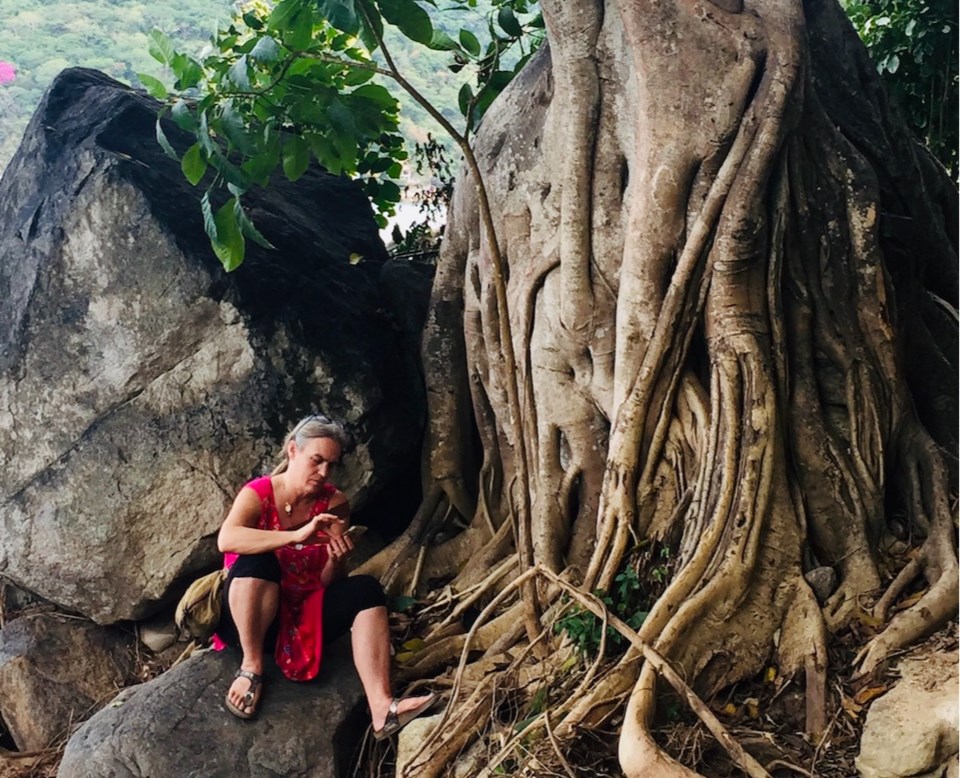Trees are almost everywhere, and as a result they are frequently taken for granted. Sure, tree wells can be hazardous, but other than that you might not spend much time thinking about them.
Michelle Beauregard thinks you should, which is why she published a book called The Tree Whisperer.
"The read is an exploration of the deep, unspoken connection between humans and trees," she explains. "For me, I used my decades-long reiki practice to have heartfelt encounters with trees around the globe—but I believe we all can have this ability to connect with nature and receive information. Maybe it's not on a verbal or spoken level, but the feelings that come, the intuition and the heart connections, are definitely there."
For those unaware, reiki is a Japanese technique for stress reduction and healing that involves practitioners placing their hands on individuals receiving treatment. It is based on the notion that an invisible "life force energy" flows through human beings, and that problems with this energy can lead to illness or stress.
Beauregard believes all things are made of energy, and trees are natural generators of such energy so they can interact with people.
"When I first learned reiki, I couldn't wait to go and put my hands on trees and connect with their energy because the healing power of nature is universal," she says. "My intention was not to write a book, but when I was travelling in China back in 2018 I had an opportunity to go to Hong Kong and stay with a friend. There's quite a few old banyan trees, and they actually hold up the walls surrounding certain parts of the city—quite different from anything we have here in Canada.
"My inspiration came from seeing how the trees were a part of the community … with people having markets near them and sitting under them, it just was really quite magical. I always love to ask people if they have a favourite tree story or a favourite tree, and this brings it right home to people."
'Healing on very deep levels'
Whistler's pine trees are hardly similar to the banyans of Hong Kong, but Beauregard emphasizes the point isn't to go far. If you're fortunate enough to live in a natural playground like the Sea to Sky corridor, you'll see them on the mountain, in all the local parks and on your block—and any of them could be a source of connection or a valued component of one's routine.
"We have to disconnect from our devices in order to connect to ourselves and nature," says Beauregard. "By taking the time to slow down, it rebalances us and actually can be quite healing on very deep levels."
The longtime Pembertonian enjoys using her book as a conversation starter at local farmers' markets. One day, a New Yorker told her that during COVID-19, he began going to a nearby park and hugging various trees because he felt isolated. Later on, he posted signs saying "Please hug me" on trees and watched as others did just that. The man felt this practice kept him alive.
Meanwhile, a lady from Winnipeg who grappled with addiction heeded a tip from her therapist to connect with a tree as a means of processing her own baggage. After doing so for eight months the woman reported feeling better, but was saddened to watch her favoured tree die. She ended up becoming a drug and alcohol counsellor.
"This isn't a scientific exploration. It's more of an intuitive journey about trees and their environment," Beauregard remarks. "There are so many trees that play very important parts in different communities, no matter where you travel. Some are used for gathering places. Others are used for ceremonies. Trees don't always have to be in service to humans. They've got their own thing going on, and without them, life on this planet wouldn't even be possible."
The Tree Whisperer is available locally at Armchair Books.




